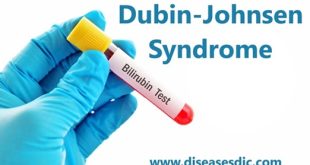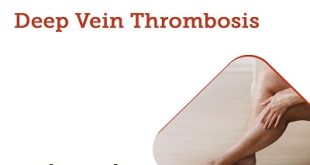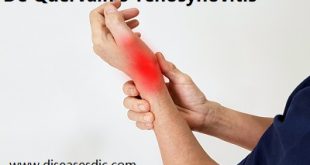Definition
Dehydration occurs when your body loses too much fluid. This can happen when you stop drinking water or lose large amounts of fluid through diarrhea, vomiting, sweating, or exercise. Not drinking enough fluids can cause muscle cramps. You may feel faint. Usually your body can reabsorb fluid from your blood and other body tissues. But by the time you become severely dehydrated, you no longer have enough fluid in your body to get blood to your organs, and you may go into shock, which is a life-threatening condition. Dehydration can occur in anyone of any age, but it is most dangerous for babies, small children, and older adults.
Types of Dehydration
Due to changes in the concentrations of electrolytes, there are three types of dehydration:
Isotonic: There is a normal concentration of electrolytes (correct ionogram), but disorders concern increased creatinine concentration. This leads to the shortage of circulating body fluids and at a later stage to hypovolaemic shock.
Hypotonic: In the course hypotension (low blood pressure) decreased fluids molarity are recognized. It can occur as a consequence of isotonic dehydration, during which the non electrolyte substances are administered.
Hypertonic: Hypertonia (increased blood pressure), higher molarity of body fluids are observed during its course. In addition, there is hypernatremia (increase in the amount of sodium) and raised creatinine concentration. This type of dehydration is more dangerous than isotonic type.
Three types of dehydration based on severity
If you go beyond 3 to 4 percent of lost fluid volume then you are getting into the stages of dehydration, which are classified as mild, moderate, or severe,
Mild (5 to 6 percent of body fluid lost): That is usually when you start to get symptoms that you can’t dodge, you start to get fatigue, dizziness, and headaches. You slow down.
Moderate (7 to 10 percent): At this stage symptoms can include low blood pressure, dry skin, faster-than-normal pulse, reduced urine output and skin that tents when you pinch it instead of springing back.
Severe (over 10 percent): If you get over 10 percent then you can get yourself into trouble, You can pass out. Because of some electrolyte abnormalities in severe hydration people can have seizures and they can die. Once people get into the 15 to 25 percent range of lost fluid volume, death occurs.
Dehydration risk factors
Health care professionals have identified certain risk factors that can make you more prone to dehydration. Risk factors include:
- Advanced age (older than 65)
- Diabetes
- Diarrhea, fever or vomiting
- Disease, disorder or condition that involves excessive urine output such as diabetes
- Recreational drug use (cocaine, meth, ecstasy)
- Young age (generally six years and younger)
Anyone can become dehydrated, but certain groups are particularly at risk. These include:
Babies and infants – they have low body weight and are sensitive to even small amounts of fluid loss
Older people – they may be less aware that they are becoming dehydrated and need to keep drinking fluids
People with a long-term health condition – such as diabetes or alcoholism
Athletes – they can lose a large amount of body fluid through sweat when exercising for long periods
Causes
Dehydration can result from not drinking enough fluid, losing too much fluid, or a combination of both. People might not drink enough because they:
- Do not feel like eating or drinking due to illness
- Are too busy and forget to drink
- Do not have immediate access to safe drinking water
- Have a sore throat or mouth sores.
People might lose body fluids more quickly than normal because of:
- Excessive sweating due to vigorous physical activity, especially in hot and humid weather
- Prolonged fever. The higher the fever, the greater the dehydration
- Severe vomiting and/or diarrhoea, which can result in substantial fluid and electrolyte loss in a short space of time
- Urinating too much, due to uncontrolled diabetes or certain medications (eg: diuretics and some blood pressure medications that cause more frequent urination).
Severe diarrhoea and vomiting is the most common cause of dehydration in babies and young children.
Symptoms
Symptoms of dehydration in adults and children include:
- Feeling thirsty
- Dark yellow and strong-smelling pee – healthy pee should look pale yellow
- Feeling dizzy or lightheaded
- Feeling tired
- Dry mouth, lips and eyes
- Peeing little, and fewer than 4 times a day
There are some additional signs to watch out for in children.
Dehydration can happen more easily if you have:
- A high temperature of 38 degrees Celsius or more
- Diabetes
- Vomiting or diarrhoea
- Been in the sun too long (heatstroke)
- Drunk too much alcohol
- Sweated too much after exercising
- Been taking medicines that make you pee more (diuretics)
Symptoms of dehydration
Complications
Dehydration can lead to serious complications, including:
Heat injury: If you don’t drink enough fluids when you’re exercising vigorously and perspiring heavily, you may end up with a heat injury, ranging in severity from mild heat cramps to heat exhaustion or potentially life-threatening heatstroke.
Urinary and kidney problems: Prolonged or repeated bouts of dehydration can cause urinary tract infections, kidney stones and even kidney failure.
Seizures: Electrolytes such as potassium and sodium help carry electrical signals from cell to cell. If your electrolytes are out of balance, the normal electrical messages can become mixed up, which can lead to involuntary muscle contractions and sometimes to a loss of consciousness.
Low blood volume shock (hypovolemic shock): This is one of the most serious, and sometimes life-threatening, complications of dehydration. It occurs when low blood volume causes a drop in blood pressure and a drop in the amount of oxygen in your body.
Diagnosis and test
Don’t forget that if you feel thirsty, you’re already dehydrated. That’s the easiest way to tell that you need more fluids.
Laboratory tests can also diagnose dehydration. Tests include:
- Low urine sodium concentration.
- High plasma serum osmolality. This measures how concentrated some particles are in your blood plasma.
- Increased creatinine. This tests kidney function.
- Elevated blood urea nitrogen. This also relates to kidney function.
Treatment and medications
The only effective treatment for dehydration is to replace lost fluids and lost electrolytes. The best approach to dehydration treatment depends on your age, the severity of your dehydration and its cause.
Oral liquids
- If you are mildly to moderately dehydrated, you may need an oral rehydration solution (ORS). This drink contains the right amount of salt, sugar, and minerals in water to replace body fluids. Ask your healthcare provider where you can get an ORS.
- Drink an ORS in small amounts if you have been vomiting. If you vomit, wait 30 minutes and try again. Ask healthcare providers how much ORS you need when you are dehydrated and how often you should drink it.
- A sports drink is not the same as an ORS. Do not drink sports drinks without asking your healthcare provider.
- Do not drink soft drinks or fruit juices. These can make your condition worse.
You may receive fluid through an IV: Electrolytes may also be included in the fluid.
Hypodermoclysis gives your body a large amount of water quickly: The water is given into the deepest layer of your skin.
Prevention of Dehydration
Advice varies. On average, an adult should drink about 2 to 3 quarts of fluid per day. Drinking 12 8-ounce glasses of fluid every day would help reach this goal. Drink more if you are in hot weather or exercising. Drinks may include:
- Water
- Fruit juices
- Sports drinks. Be careful of the sugar in these drinks, especially if you have diabetes.
- Other drinks that have electrolytes
- Soda with no caffeine
- Tea with no caffeine
- Coffee with no caffeine
If you have been diagnosed with kidney or heart disease, ask your healthcare provider how much and what types of fluids you should drink to prevent dehydration. When you have kidney or heart disease, fluid can build up in the body. This can be dangerous to your health.
 Diseases Treatments Dictionary This is complete solution to read all diseases treatments Which covers Prevention, Causes, Symptoms, Medical Terms, Drugs, Prescription, Natural Remedies with cures and Treatments. Most of the common diseases were listed in names, split with categories.
Diseases Treatments Dictionary This is complete solution to read all diseases treatments Which covers Prevention, Causes, Symptoms, Medical Terms, Drugs, Prescription, Natural Remedies with cures and Treatments. Most of the common diseases were listed in names, split with categories.








that is so quiet and simple well summarize and reliable to understand